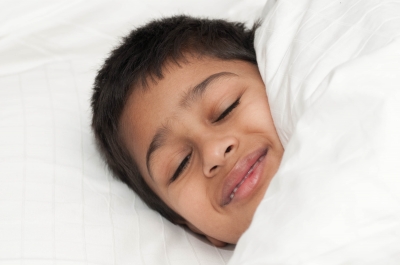 |
BlubberBusters Tips
from Lucy (Click here for past week's tips) |
||||||||||
SleepYour secret weight loss palsssshhhh!!Children and teens suggest great weight loss tips on the Weigh2Rock bulletin boards: drink more water, go on walks, call a friend, and eat fruit instead of sweets are some of the more common kids' tips.
Signs that you may not be getting enough sleep You may already have a rough idea of how much sleep you get each night.  Is it enough? Is it quality sleep? If you often find yourself tired, sleepy, or cranky, or have trouble paying attention in school, then you may need to improve your sleep habits. It is normal to feel a little sleepy following a large meal, such as during the first class after lunch. But sleepiness throughout the day, day after day, is not a good sign. Is it enough? Is it quality sleep? If you often find yourself tired, sleepy, or cranky, or have trouble paying attention in school, then you may need to improve your sleep habits. It is normal to feel a little sleepy following a large meal, such as during the first class after lunch. But sleepiness throughout the day, day after day, is not a good sign.Vicious Cycle of Overweight and Poor Sleep Do you ever wake up snoring or do your parents, a brother or sister ever tell you that you snore? Most children snore on occasion, but if you snore loudly on a regular basis, then this might signal a problem. If you have pauses or gasps  as you breathe during your sleep (you may not know unless someone happens to observe you doing this), then you could have sleep apnea. Sleep apnea is very poor quality of sleep. One of the causes of sleep apnea is obesity. If one is overweight partly due to poor sleep, then the inability to get better sleep due to sleep apnea means overweight is sustained or worsens. This can become a vicious cycle. The good news is that sleep apnea can be treated. There are also other causes of sleep apnea such as asthma, large tonsils, and respiratory infections. Click on the sleeping child to see a video describing sleep apnea. as you breathe during your sleep (you may not know unless someone happens to observe you doing this), then you could have sleep apnea. Sleep apnea is very poor quality of sleep. One of the causes of sleep apnea is obesity. If one is overweight partly due to poor sleep, then the inability to get better sleep due to sleep apnea means overweight is sustained or worsens. This can become a vicious cycle. The good news is that sleep apnea can be treated. There are also other causes of sleep apnea such as asthma, large tonsils, and respiratory infections. Click on the sleeping child to see a video describing sleep apnea.Depression and Sleep Disorders Excessive (too much) sleep may be a sign of depression. If you have trouble getting out of bed and return to bed after school or other mandatory activities, plus you feel sad, hopeless, and withdrawn, then depression may be driving your poor sleep pattern. There can also be sleep disorders such as insomnia (inability to fall asleep), narcolepsy (falling asleep very quickly at unexpected times), and as described above, sleep apnea (periodically gasping for breaths while sleeping). Tell your parents and see your doctor if you are having any trouble sleeping lasting longer than two weeks. Steps to improving the length and quality of your sleep For some kids, it takes more than counting sheep to fall asleep readily. Below are ways to improve your sleep patterns.1. Night thoughts are not right thoughts If your mind keeps racing or you're worried about something and can't fall asleep, tell yourself that things always seem worse at night and will seem much better in the morning. Just say, "No thoughts, just rest." Turn off your mind and just feel how good it feels to rest. Relax each part of your body. Rest has many of the benefits of sleep, especially if you shut down your mind and relax all over. And amazingly, you will suddenly be asleep! 2. Limit screen time Screen time means using computers, TVs, iPhones, cellphones, Game Boys, iPods....anything with an electronic screen. How much time are you using a screen each day? Although technology is part of today's world, too much screen time takes away from opportunities to get physical activity. Using screens late at night can also interfere with getting enough sleep as it revs you up. This is why it is best to remove TVs and computers from bedrooms. Kids who fall asleep with TV volumes left on are also missing out on quality sleep since the noise can prevent them from reaching deeper sleep. 3. Limit caffeine Caffeine is a stimulant. For this very reason, coffee is used by millions to wake up each morning. Significant amounts of caffeine are also found in drinks and food popular with  many kids: energy drinks, soft drinks, teas, and chocolate. Drinking or eating these foods within several hours of bedtime will make it difficult for you to fall asleep. Studies have found that children who drink caffeinated beverages sleep less than those who don’t. Furthermore, caffeinated drinks are diuretics so drinking them in the evening will result in frequent trips to the bathroom during the night to pee. many kids: energy drinks, soft drinks, teas, and chocolate. Drinking or eating these foods within several hours of bedtime will make it difficult for you to fall asleep. Studies have found that children who drink caffeinated beverages sleep less than those who don’t. Furthermore, caffeinated drinks are diuretics so drinking them in the evening will result in frequent trips to the bathroom during the night to pee.4. No big meals several hours before sleep Meals with significant fat can keep you awake while your stomach works on digestion. Spicy and acidic foods are more likely to cause heartburn if you lie down quickly after eating. Thus, eat dinner at least several hours before you plan to go to bed.  5. get exercise
5. get exerciseKids who have spent some of their day running around will sleep better; they will sleep longer and more deeply. 6. Set regular sleep hours The body can have a hard time adjusting to new sleep hours, even variations on the weekends. So try to be consistent in the time of evening when you go to sleep. This pediatric doctor (a doctor who treats children up to 18 years old) has similar tips plus a few more ideas. Kids who sleep better are less likely to be obese. Take steps to improve your sleep patterns. Good sleep habits can help pay off in not only increased alertness and happiness, but also support you in achieving a healthier weight. Treat yourself to better sleep and wake up to a fresh start and a new you!
Let us know what you think of this tip. Make this a healthy week! (Click here for past week's tips) |
|||||||||||
Please ask your
healthcare provider if these tips are right for you and please read our disclaimer.
 However, getting quality sleep is rarely suggested as a tip even though evidence shows longer and deeper sleep is linked to a healthy body weight. If you are often short of sleep, a few changes may help you get better rest and thus shed the extra pounds.
However, getting quality sleep is rarely suggested as a tip even though evidence shows longer and deeper sleep is linked to a healthy body weight. If you are often short of sleep, a few changes may help you get better rest and thus shed the extra pounds. What we do know is that we have reduced or absent consciousness during this time, and the muscles we use to move around during the day are relaxed. Important benefits of sleep include building up tissues and organs such as skeletons, muscles, nerves, and the immune system, which fights off infections and diseases.
What we do know is that we have reduced or absent consciousness during this time, and the muscles we use to move around during the day are relaxed. Important benefits of sleep include building up tissues and organs such as skeletons, muscles, nerves, and the immune system, which fights off infections and diseases.
